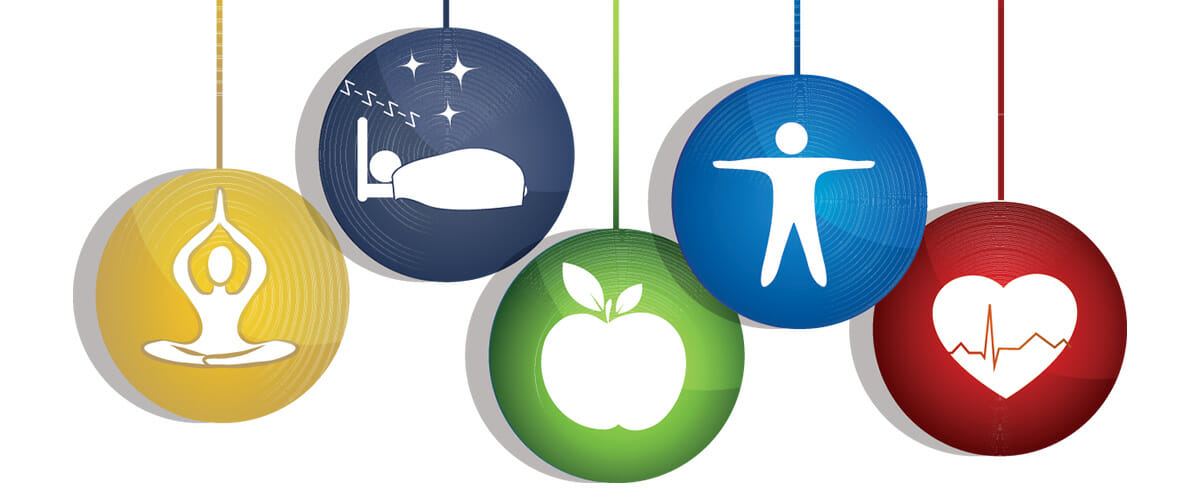Five Pillars of Brain Health


Our vision, in everything we do, is to convey a shared value of compassion, a commitment to excellence, open communications, motivation to be the best, and a sense of personal integrity. We are honored to care for our residents and share a passion to make their days enriching and fulfilling. It’s The Caraday Way!
Our choices, the way we live our lives, has a significant impact on brain health. It’s not enough to eat well or exercise; there needs to be balance and mindfulness across your lifestyle and decisions to support healthy brain functions. You can play an active role in maintaining and sustaining brain health with these five pillars:
1. Physical Exercise
Get your body moving with regular exercise, in whatever form you enjoy most—walking, biking, swimming, or even dancing. Individuals who engage in regular physical activity have a lower risk of developing Alzheimer’s disease. While it’s good for your overall health, exercise gets your blood flowing and stimulates chemical changes in the brain that impact mood and memory.
2. Sleep
Sleep is a powerful and often overlooked tool to stay active, energetic, and healthy. Despite what you may have heard, older adults still need 7-8 hours of nightly sleep. Sleep and relaxation can boost your immune system and mood and manage stress. It also reduces the build-up of beta-amyloid, an abnormal protein associated with Alzheimer’s disease. Getting the right amount and quality of sleep can fend off age-related brain decline.
3. Nutrition
The food you consume matters, especially for brain health. Aging adults are subject to increased oxidation, which damages brain cells. You can fight back and protect your brain by eating foods rich in antioxidants like broccoli, spinach, carrots, squash, and more. A Mediterranean diet is also shown to maintain brain health and reduce the risk of Alzheimer’s.
4. Mental Engagement
The saying ‘use it or lose it’ is true when it comes to your mental capacity. As we learn new skills and develop interests, we improve our brain reserve, which helps our brains adapt to changes. Older adults are capable of learning new skills or trying new activities to continue building their brain reserves instead of allowing it to decline. You can also engage your brain in social activities by connecting with others in conversation. Mental exercise and interaction support brain health and reduce memory decline.
5. Proactive Medical Health
To have a healthy brain, you need a healthy body. It’s important to be proactive in health by visiting doctors for regular checkups or managing a medical condition like diabetes, depression, or high cholesterol. Taking medications as prescribed and staying connected with doctors and specialists to improve health can also engage your brain in a healthy lifestyle.


